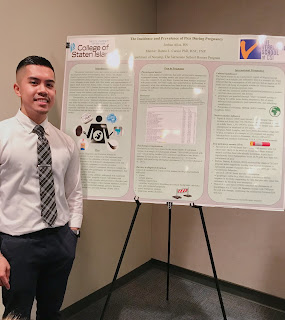Kailie Yuan, Verrazano Honors Class of 2019, earned a major in Computer Science and a minor in Math (in just 2.5 years!)
When I first heard this capstone was a requirement to graduate with Verrazano, I instantly freaked out because never in a million years would I have imagined completing this. There is no doubt this was one of the hardest things I’ve had to do. At the time, I was scared to step out of my comfort zone to push myself to self-learn something and to disappoint a professor who is said to be amazing. But I figured it would be similar to when I self-learn any of my other classes. It turns out, I was half right.
When I first heard this capstone was a requirement to graduate with Verrazano, I instantly freaked out because never in a million years would I have imagined completing this. There is no doubt this was one of the hardest things I’ve had to do. At the time, I was scared to step out of my comfort zone to push myself to self-learn something and to disappoint a professor who is said to be amazing. But I figured it would be similar to when I self-learn any of my other classes. It turns out, I was half right.
 |
| Kailie presenting at the Undergraduate Research Conference |
 I was very discouraged at that point and once again considered to leave Verrazano because this was the one thing I couldn’t do. I felt that I was letting myself and my professor down because I’ve been working on the research for so long. At the same time, I never gave up on anything without a good fight, and so, I decided to be honest with my research professor that I had no idea in what to do. He then changed the research slightly to something much more doable. I instantly felt better because I saw a light at the end of the tunnel.
I was very discouraged at that point and once again considered to leave Verrazano because this was the one thing I couldn’t do. I felt that I was letting myself and my professor down because I’ve been working on the research for so long. At the same time, I never gave up on anything without a good fight, and so, I decided to be honest with my research professor that I had no idea in what to do. He then changed the research slightly to something much more doable. I instantly felt better because I saw a light at the end of the tunnel.
Of course, there were still minor bumps in the research, but I was able to learn how to deal with myself as a person. Doing this research also taught me to rely on the web until you can’t, which in that case, you need to speak to whoever is in charge – even if it means they might be slightly disappointed. I know this isn’t the typical happy and wonderful experience you hear from students who have done research, but hey, not everything in life is that way for everyone. And the most important thing is, even through those emotions, I was able to get this capstone done and graduate with Verrazano.





